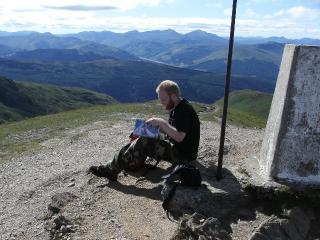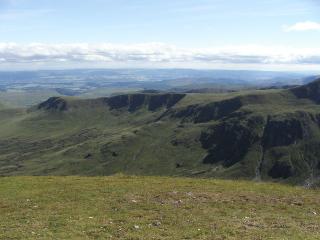SCIASCIA
After three years I have finally read all six of the Granta reprints of Leonardo Sciascia's work. Less of an achievement than it may sound, given that the longest of them doesn't come to much over 200 pages, if that; nevertheless, I'm satisfied to have done it. Sciascia is considered one of the most able and significant of 20th century Italian writers, and perhaps the writer on Sicily if you exclude Lampedusa. Naturally, in Britain, which doesn't really value writers - when was the last time you saw a writer on Parkinson? - he's often punted as a highly polished detective novelist, but the Granta reprints cover crime fiction, the political thriller, naturalistic short stories, historical fiction and political commentary.
And yet, out of The Day of the Owl, Equal Danger, The Wine-Dark Sea, Sicilian Uncles, The Knight and Death & One Way or Another, The Moro Affair, I can really only recommend The Day of the Owl, which is I admit a detective story, but one which carries, implies, suggests so much more. (That's recommend in the sense of, you have to burn 94% of your library, so what are you going to keep? All of them can be read with pleasure and reward.) There is clearly something significant going on in One Way or Another (Todo Modo), which presages the events of the Moro affair and the writing of The Moro Affair, but I'm going to have to re-read it slowly. Perhaps it's the genre element of The Day of the Owl which makes it easier to tap into.
A man running across a square in an unnamed town in Sicily is shot dead in front of a bus-load of people, yet when the police arrive, no-one has seen anything. Slowly, meticulously, with patience and determination, a former partisan from the north, Captain Bellodi of the carabinieri, begins to pick away at the layers of deceit, fear and manipulation which protect the perpetrators. Meanwhile, their friends in Palermo and Rome begin to take an interest, knowing that the chain Bellodi is uncovering leads up and up.
I have read The Day of the Owl three times, and will read it again, not simply for the pleasure of revisiting but knowing there will be something new to discover. Not bad for a book of just over 100 pages.
Sciascia doesn't offer solutions - he describes conundrums, reflecting the paradoxes of Sicily itself: soil-rich yet perpetually poor; conquered by dozens of invaders yet retaining its own character; part of Italy, and yet not (did you know that there was a quite serious suggestion from within the island to make Sicily an American state after the end of WWII?); and crippled by over a century of the omnipresent Mafia, which with the political elites (insofar as the two can now be distinguished) continues to stifle, pervert or ruin every attempt to introduce anything resembling natural justice and fair government, a condition which has spread to all of Italy according to Peter Robb (see his excellent Midnight in Sicily). I can only assume that the knotty, allusive character of the Sicilian dialect is reflected in Sciascia's Italian - certainly the English is tremendously compressed and precise in a way which makes me think of Alan Garner - there's as much to be learned from what isn't said, from what's implied, as there is from what's stated. There's no doubt that in places this is deliberate - Sciascia himself says explicitly in an afterword to The Day of the Owl that he was forced to cut and cut again, not to protect the innocent, but the guilty. That's a very Sciascian - and, one guesses, Sicilian - inversion.
Really what he is doing in all his work is giving us - as one puff says - fables about the nature of power, and there's a tremendous amount to be learned from him. Not least in a country where the Prime Minister can lie to Parliament and the nation, be found out, and not be impeached.
Having a feel for the subterranean movements in Italian society, and a particular sensitivity to those tremors that started in Sicily and later hit the mainland, Sciascia condensed tendencies into images and acts with such precision that reality followed where his imagination led.
- Peter Robb




